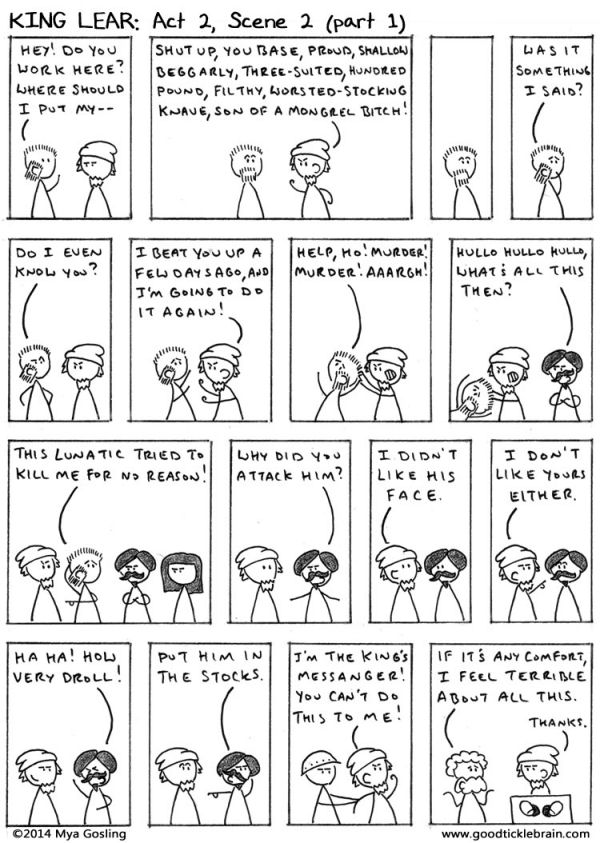 Australia has horrible inheritance laws. They are the source of terrible injustices and family disputes. Below I quote from Ben White et al, "Estate contestation in Australia: an empirical study of a year of case law," which talks about the non-financial costs as well as public and private costs. It rates the chances of court actions succeeding in different states and describes differences in state laws. It also refers to some suggested reforms, which include making it more difficult for adult children to contest wills. To my mind, this would mean to keep on disinheriting them in the disreputable Anglosphere way. At the moment any adult child can contest a will on the basis of being very poor. One of the reforms this study flags is that a person would have to show they were very poor before they qualified to contest the will. However that would not take much away from all the hurt and jealousy about unequal distributions, so famous in King Lear. I prefer the French Civil code, which says you have to distribute your estate equally to all your children, legitimate and illegitimate, from any marriage. This kind of law also cuts back the expansion of de facto claims, which in Australia, the US, England etc threaten to expand nearly infinitely now that both heterosexual and same-sex liaisons can be interpreted legally as de facto - yet another indicator that marriage is mostly about property in the Anglosphere, where spouses trump children and marriage can bankrupt you. For the rules on this, see, for instance, https://fortefamilylawyers.com.au/wp-content/uploads/2017/07/FFL_485542_Proving-the-existence-of-de-facto-relationships-in-family-matters.pdf.
Australia has horrible inheritance laws. They are the source of terrible injustices and family disputes. Below I quote from Ben White et al, "Estate contestation in Australia: an empirical study of a year of case law," which talks about the non-financial costs as well as public and private costs. It rates the chances of court actions succeeding in different states and describes differences in state laws. It also refers to some suggested reforms, which include making it more difficult for adult children to contest wills. To my mind, this would mean to keep on disinheriting them in the disreputable Anglosphere way. At the moment any adult child can contest a will on the basis of being very poor. One of the reforms this study flags is that a person would have to show they were very poor before they qualified to contest the will. However that would not take much away from all the hurt and jealousy about unequal distributions, so famous in King Lear. I prefer the French Civil code, which says you have to distribute your estate equally to all your children, legitimate and illegitimate, from any marriage. This kind of law also cuts back the expansion of de facto claims, which in Australia, the US, England etc threaten to expand nearly infinitely now that both heterosexual and same-sex liaisons can be interpreted legally as de facto - yet another indicator that marriage is mostly about property in the Anglosphere, where spouses trump children and marriage can bankrupt you. For the rules on this, see, for instance, https://fortefamilylawyers.com.au/wp-content/uploads/2017/07/FFL_485542_Proving-the-existence-of-de-facto-relationships-in-family-matters.pdf.
"While the potential financial cost to the testator's family and friends (who are generally beneficiaries) through the dissipation of the estate is generally well-known, estate contestation can also lead to other significant adverse outcomes. For example, the distribution of assets after death is not a purely financial or legal exercise, and dispositions in a will can represent a very public realignment of relationship and hierarchies within a family.
These disputes, which necessasrily challenge that statement of family relationships by the testator, are likely to create, or exacerbate, family disharmony and conflict, and/or become a focal point for past injustices or disputes. This is unsurprising given some of the features of a will contest: it occurs during aperiod of grief, pits claimants against beneficiaries, and often brings contact with the legal system (which traditonally has taken an adversarial approach to the resolution of these disputes) [...] This conflict is often not limited to the period of the legal dispute and can persist over time, in some cases across generations.
Engagement with legal processes also shifts private life into the public domain, requiring families to air their 'dirty laundry'. This loss of privacy can cauase not only embarassment adn reputational damage, it can also be a source of further family conflict with the family member who has brought such matters to public view. Estate contestation also has implications for the state through the resources it requires from the publicly funded judicial system." (Source: Ben White et al, "Estate contestation in Australia: an empirical study of a year of case law," UNSW Law Journal, pp880-881.
Fewer will challenges in France than in Australia and other Anglophone countries?

Are there fewer will challenges in France, where inheritance rules are set out in the Civil Code, than in Anglophone countries, where parents can disinherit their children and leave their possessions to a cat charity for example?
In France (and in all Roman law countries) the laws of succession are set out in the Civil code. Children of the deceased share equal parts of the total estate. One cannot disinherit one's children.
In Anglophone countries no laws prescribe that children, young or adult, must inherit the most part of their parents' estates. Recently the French were confronted by the bizarre and heartless practices on the Anglophone side of the Atlantic when French singer and long time narcotics user, Johnny Hallyday, left all his money to his wife in California and nothing at all to his French children.
You can disinherit your whole family and give everything to a second or third wife, to a charity or a passing fancy, or even to a cat in the Anglosphere (although you do have to set up a trust for a cat).
Whilst there are case-law precedents that offer ways to challenge bequests of entire family fortunes to charities or passing fancies, you need to hire an expensive lawyer even to start such a process. If there is any chance at all of success, you are bound to find professional encouragment, but what are your real chances of success? You are risking a lot.
Because of the famous liberty of people in Anglophone countries to dispose of their estates in any way they wish, will challenges are very common and cost a great deal emotionally and financially to families, estates and taxpayers. Lawyers are the winners.
Most wills are contested on the basis of failure to leave money to support children or adult children who have fallen on very hard times or who cannot earn their living because of physical or mental incapacities. This kind of justice has crept into our case law through the back door.
A way for will beneficiaries to counter such claims is to argue that the claimants are such dreadful people that they have no right to make a claim. This is referred to technically as 'disentitling character or conduct'. Since family members are rarely sued for defamation, will contests are often the scenes of Learish character assassinations, like the ones in the stick-figure King Lear illustration above (from Mya Gosling at Tickle Brain's series on Shakespear.)
In France there are far fewer options to dispute wills, although families will sometimes try to prevent their parents from using up entire estates before they die by asserting parental incompetence. Of course this also happens in the Anglosphere.

Add comment